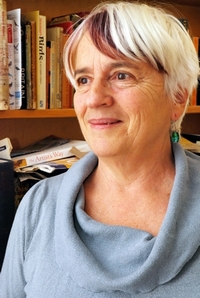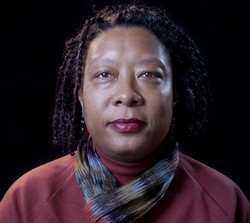Dear Friends,
The BLYM Residential Yearly Meeting has been postponed until 2022.
Our theme is:
Community, Compassion and Unity
There will be two guest speakers:
 Jennifer Kavanagh has been a Quaker for twenty-five years. She lives in London and attends Westminster meeting. Since leaving her publishing career of some thirty years, she has run a community centre in London’s East End, worked with street homeless people and refugees, set up microcredit programmes in London and several African countries, and worked as a research associate for the Prison Reform Trust. She spent many years facilitating conflict resolution workshops for Alternatives to Violence (AVP), both in prison and in the community.
Jennifer Kavanagh has been a Quaker for twenty-five years. She lives in London and attends Westminster meeting. Since leaving her publishing career of some thirty years, she has run a community centre in London’s East End, worked with street homeless people and refugees, set up microcredit programmes in London and several African countries, and worked as a research associate for the Prison Reform Trust. She spent many years facilitating conflict resolution workshops for Alternatives to Violence (AVP), both in prison and in the community.
Jennifer is an associate tutor for Woodbrooke Quaker Study Centre. She gives talks and runs workshops and retreats on aspects of the Spirit-led life. She is the author of two novels, ten books of non-fiction, and two games.
Balancing an active life with a pull towards contemplation is a continuing and fruitful challenge.
She will present the first session:
“Existence is an intricately interconnected web of relationships. We share the breath of life and thus we are connected.” (Satish Kumar)
This first session will take the form of a talk: a personal and spiritual overview of the topic of community, compassion and unity. About our uniqueness and diversity, and our interconnectedness, both in our human communities and with the rest of the created world. And how Unity is ultimately found in the Divine, our diversity both embraced by that oneness and an expression of it.
Followed by a time for Q&A
 Edwina Peart is the diversity and inclusion coordinator for BYM. She has been in post since 2018 and has organised two national gatherings and held many workshops and provided learning opportunities with local and area meetings, committees and staff groups. She has wide and varied experience of equality and justice work in both local and international contexts and has a background in research, education and health. She favours an intersectional approach that prioritises lived experience whilst recognising the constraints of structures and institutions that regulate and mediate modern life.
Edwina Peart is the diversity and inclusion coordinator for BYM. She has been in post since 2018 and has organised two national gatherings and held many workshops and provided learning opportunities with local and area meetings, committees and staff groups. She has wide and varied experience of equality and justice work in both local and international contexts and has a background in research, education and health. She favours an intersectional approach that prioritises lived experience whilst recognising the constraints of structures and institutions that regulate and mediate modern life.
This is how Edwina describes her individual session:
This session will be interactive and practical. I want to look at what community, compassion and unity (and their absence) looks and feels like in faith groups and the wider society. To do this I will draw on contemporary examples that resonate locally and globally. My current thinking is around refugees, nationality and ethnicity, and covid. Participants will likely be asked to participate in group work, possibly pairs. There will be specific questions/activities probing what Quakers with a faith-based approach can contribute and where they may need help.
They will present two joint sessions:
We will explore in pairs, groups and plenary the themes of community and belonging. What is community? Is it growing or stagnant? Outward-facing and inclusive, or inward-facing and excluding? Where do we belong? Why do we belong? What role does choice, default or intention play? What is the role of others?
Unity: how we can accept our diversity as human beings and embrace our interconnectedness. How we can find the unity of the Divine and express it in our lives.
Games, texts, solo activities, visuals and meditation may be used, Leading into Meeting for Worship.
The weekend will also be an opportunity to meet up with Friends we have not seen for a long time and join in some fun activities.
Anne Stone, Phil Gaskell, Jeannette Delgado-Holdsworth & John Williams
